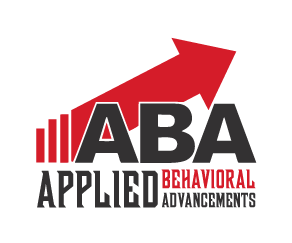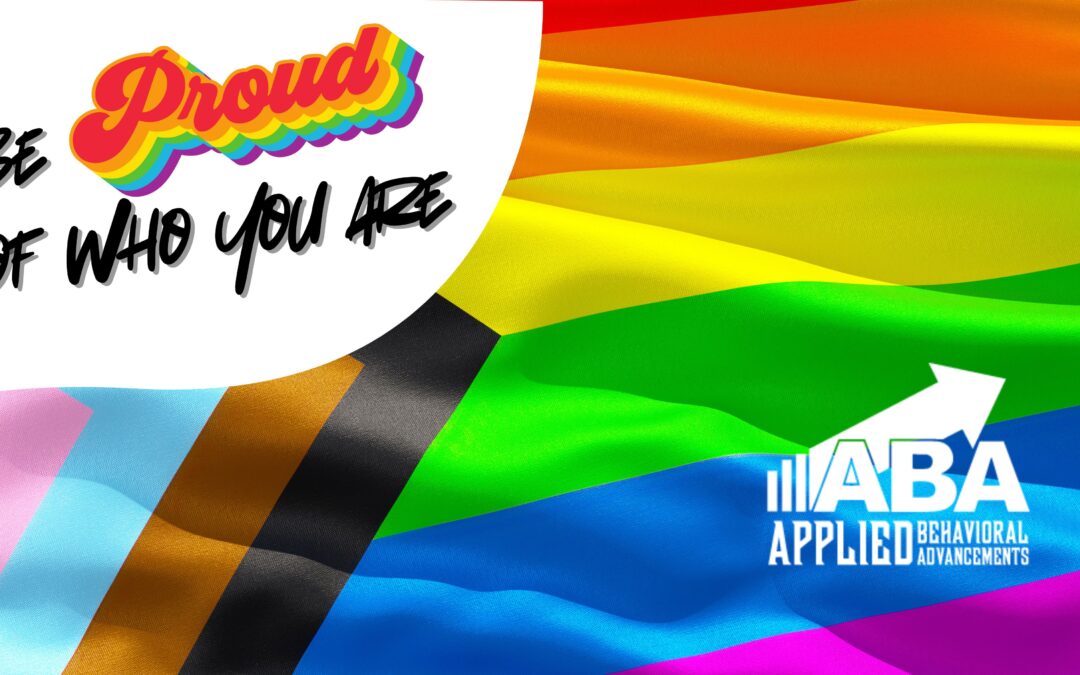What’s the connection between Autism and Pride Month?
During the month of June, millions of people in the United States and abroad celebrate LGBTQ+ Pride Month. The celebration recognizes the contributions of LGBTQ+ people and the history of their struggle to live freely as themselves. Additionally, Pride reminds us of the continued need to strive for every individual’s right to liberation.
During a recent study from SPARK (one of the largest ongoing autism studies) data revealed that of the Autistic adults surveyed, 41% identified as being lesbian, gay, or bisexual. This discovery wasn’t new, as several similar studies’ data agrees; there is a high correlation between Autism and LGBTQ+ identity. Socially, both LGBTQ+ and Autistic individuals struggle with lack of acceptance due to being ‘outside’ of the norm. Consequently, those who experience the intersection of LGBTQ+ and Autistic identity may experience unique struggles. Many report with mental health issues, trouble receiving proper health care, and a lack of acceptance from people in their community.
Here at ABA-LLC, we are proud to celebrate the unique identities of everyone in our community. In addition to serving members of the LGBTQ+ population, several of our clinicians identify as LGBTQ+. It is a core value of our agency that every individual has a right to live a fulfilling and independent life integrated within their communities. We are proud to promote a culture where all individuals, regardless of their identity, are welcome to be themselves. This Pride month and every month, ABA-LLC is proud to embrace our LGBTQ+ friends.
What is Pride Month?
The acronym LGBTQ+ stands for Lesbian, Gay, Bisexual, Transgender, and Queer, with the plus representing the diverse array of identities that fit under the Queer label. Sometimes denoted as LGBTQIA+, which also includes Intersex and Asexual people in the acronym. However you choose to spell it out, this term is like an umbrella that encompasses a broad variety of identities that are the minority in our society. That is – those identities that are not heterosexual and cisgender.
Though in our current day and age, Pride means parades, festivals, and parties, the celebration has origins in protest. The first Pride marches were held in 1970 to celebrate “Christopher Street Liberation Day,”; the one year anniversary of a series of riots that occurred at the Stonewall Inn in New York City. The riots at Stonewall marked a turning point in the US gay liberation movement. LGBTQ+ individuals demanded a life free from police raids, fear of losing their jobs or homes, stigmatization by psychiatrists, or demonization by the church. Thus, Gay Pride was born.
We’ve come a long way for LGBTQ+ rights, but activists continue the fight to make sure that lesbian, gay, bisexual, and transgender individuals receive equal rights and a world free from discrimination.
Autism & LGBTQ+ identity
Contemporary studies show that individuals on the spectrum are more likely to identify as LGBTQ+ than their neurotypical peers. Researchers most commonly agree that this is due to socialization. Neurodiverse people already experience life that is outside of the neurotypical norm. People on the Autism spectrum may feel less pressure from social norms to conform to an identity that doesn’t fit. Therefore, they are more likely to present themselves in a more honest and authentic manner.
Autistic individuals who identify as LGBTQ+, sitting at an intersection of two minority identities, often report higher rates of stress. It can be challenging not being understood by society. Often, individuals at this intersection of identity report trouble with unmet physical health needs. Some patients even report being straight up denied service by a medical provider.
Many individuals on the ASD spectrum struggle with being infantilized. Until very recently, it was inferred that individuals on the spectrum did not experience sexual attraction at all. Topics like sexual health were considered inappropriate. However, researchers like Dr. Wenn Lawson P.h.D. asserts that Autistic individuals experience sexual attraction. In his lecture “Gender Sexuality, and Autism,” he encourages parents and caregivers to give their Autistic loved ones with proper sexual education. He advises providing information, and advice about dating so they do not seek it out from inappropriate and even dangerous sources. You can read ABA-LLC’s guide to dating on the Autism Spectrum here.
The overlap between these identities only heightens the importance of each group’s individual struggle. Like LGBTQ+ people fighting to be accepted for who they are, individuals with Autism deserve to be respected and embraced.
Kentucky LGBTQ+ Resources
Kentucky Fairness Campaign
Find a Kentucky PFLAG Chapter
Reading
The Autistic Trans Guide to Life by Yenn Purkis and Wenn Lawson
Gender Identity, Sexuality, and Autism by Eva A. Mendes and Meredith R. Maroney
The Autism Spectrum Guide to Sexuality and Relationships: Understand Yourself and Make Choices that are Right for You by Emma Goodall
Studies on Intersection of Autism & LGBTQ+ Identity
https://sparkforautism.org/discover_article/stress-autistic-lgbq/
https://pmc.ncbi.nlm.nih.gov/articles/PMC7430467/
https://autism.org/sexuality-and-gender/
https://www.thetransmitter.org/spectrum/gender-and-sexuality-in-autism-explained/?fspec=1
https://www.thetransmitter.org/spectrum/autistic-lgbtq-people-report-frequent-mental-health-problems/?fspec=1
Conclusion
At ABA-LLC, we are proud to provide a welcoming and inclusive atmosphere for individuals of all backgrounds. We believe we’re called to love and support all of our neighbors. Everyone is valuable regardless of who they love, their gender identity, or their neurodiversity. For far too long, those with marginalized identities have been shut out of the conversation. We believe they bring incredible value to every room they are a part of. We are proud to celebrate differences with our LGBTQ+ clients and clinicians this month and every month!
About ABA-LLC
ABA-LLC is one of the largest suppliers of Behavior Support in the State of Kentucky. Since 2007, the agency has created innovative strategies to improve the lives of unique individuals. ABA-LLC employs around 150 contractors, each dedicated to building an inclusive culture that celebrates individuals of all abilities. No matter who you are, you can reach your goals at ABA-LLC.
In everything the agency does, ABA-LLC is set apart from its competitors by its uniquely person-centered approach. The agency strives to provide services from a place of deep love for the population they serve. Their work exemplifies the belief that every individual has a right to live a fulfilling and independent life integrated within their communities. There is no objective to change a person, but rather to give them the tools they need to succeed. B.F. Skinner summarizes this vision in his quote: “I’m not trying to change people. All I want is to change the world in which they live.”

